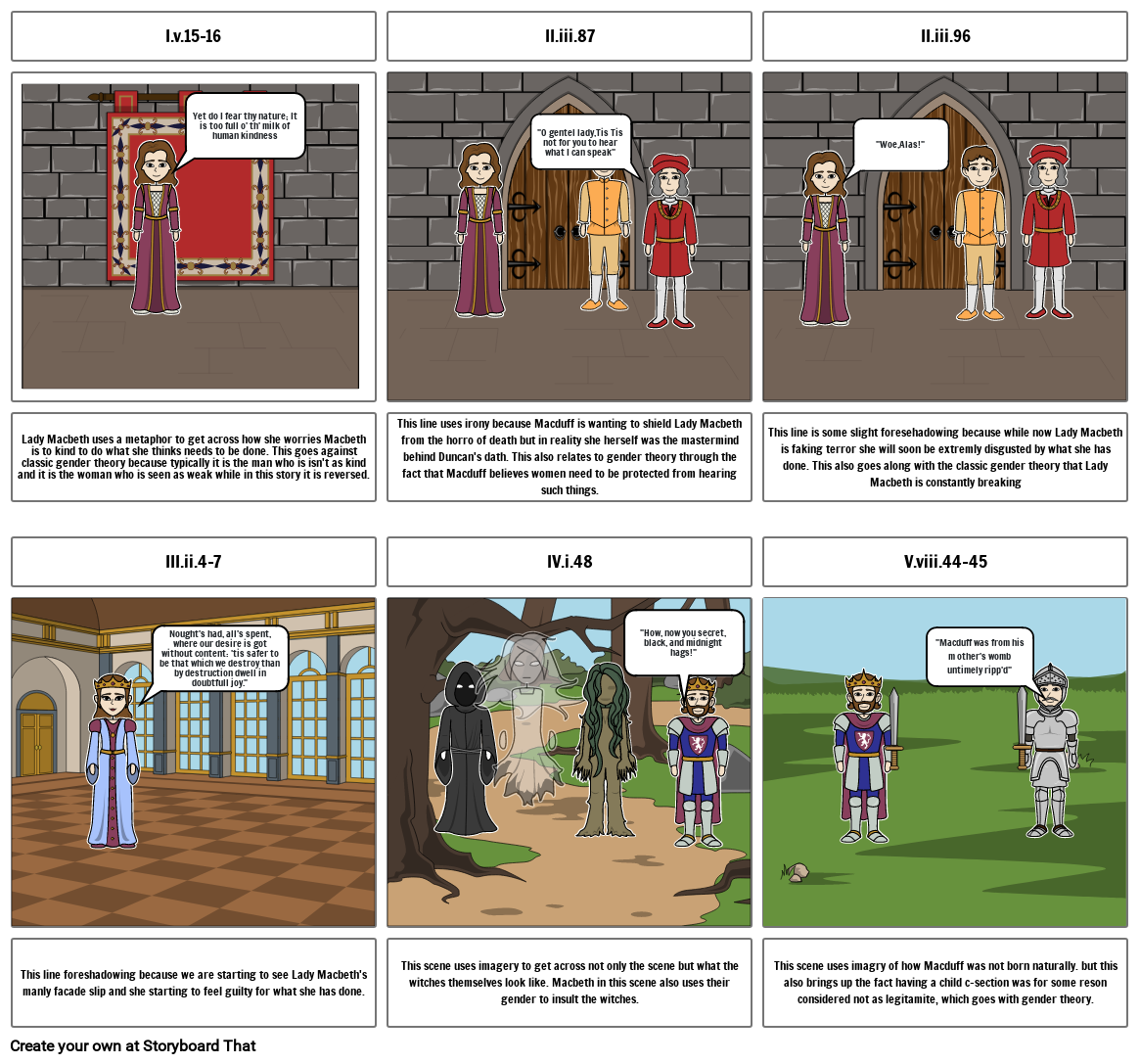macbeth storyboard

Storyboard Szöveg
- I.v.15-16
- Yet do I fear thy nature; It is too full o' th' milk of human kindness
- II.iii.87
- "O gentel lady,Tis Tis not for you to hear what I can speak"
- II.iii.96
- "Woe,Alas!"
- Lady Macbeth uses a metaphor to get across how she worries Macbeth is to kind to do what she thinks needs to be done. This goes against classic gender theory because typically it is the man who is isn't as kind and it is the woman who is seen as weak while in this story it is reversed.
- III.ii.4-7
- Nought's had, all's spent, where our desire is got without content: 'tis safer to be that which we destroy than by destruction dwell in doubtfull joy."
- This line uses irony because Macduff is wanting to shield Lady Macbeth from the horro of death but in reality she herself was the mastermind behind Duncan's dath. This also relates to gender theory through the fact that Macduff believes women need to be protected from hearing such things.
- IV.i.48
- "How, now you secret, black, and midnight hags!"
- This line is some slight foresehadowing because while now Lady Macbeth is faking terror she will soon be extremly disgusted by what she has done. This also goes along with the classic gender theory that Lady Macbeth is constantly breaking
- V.viii.44-45
- "Macduff was from his m other's womb untimely ripp'd"
- This line foreshadowing because we are starting to see Lady Macbeth's manly facade slip and she starting to feel guilty for what she has done.
- This scene uses imagery to get across not only the scene but what the witches themselves look like. Macbeth in this scene also uses their gender to insult the witches.
- This scene uses imagry of how Macduff was not born naturally. but this also brings up the fact having a child c-section was for some reson considered not as legitamite, which goes with gender theory.
Több mint 30 millió storyboard készült

